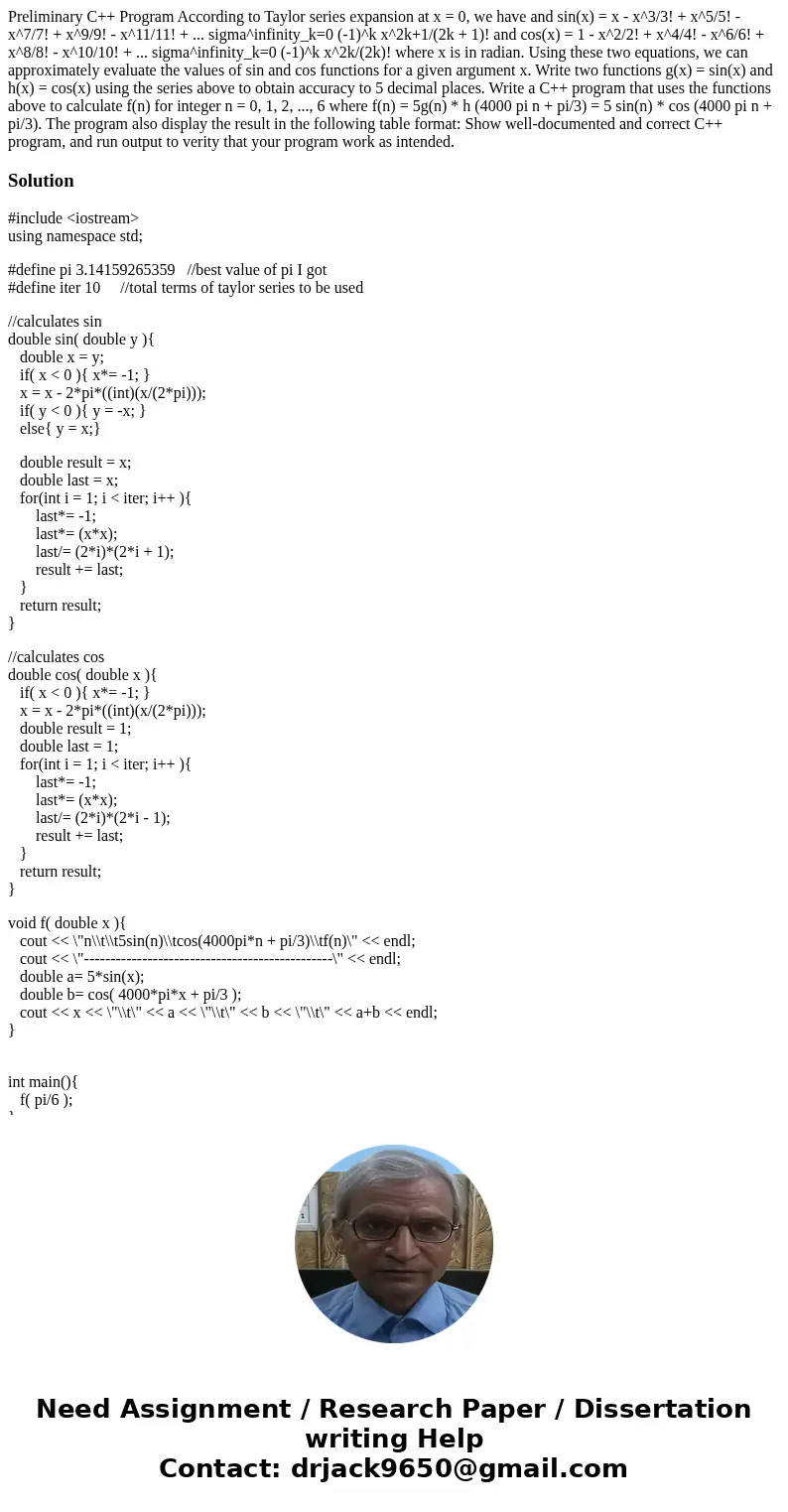Preliminary C Program According to Taylor series expansion a
Solution
#include <iostream>
using namespace std;
#define pi 3.14159265359 //best value of pi I got
#define iter 10 //total terms of taylor series to be used
//calculates sin
double sin( double y ){
double x = y;
if( x < 0 ){ x*= -1; }
x = x - 2*pi*((int)(x/(2*pi)));
if( y < 0 ){ y = -x; }
else{ y = x;}
double result = x;
double last = x;
for(int i = 1; i < iter; i++ ){
last*= -1;
last*= (x*x);
last/= (2*i)*(2*i + 1);
result += last;
}
return result;
}
//calculates cos
double cos( double x ){
if( x < 0 ){ x*= -1; }
x = x - 2*pi*((int)(x/(2*pi)));
double result = 1;
double last = 1;
for(int i = 1; i < iter; i++ ){
last*= -1;
last*= (x*x);
last/= (2*i)*(2*i - 1);
result += last;
}
return result;
}
void f( double x ){
cout << \"n\\t\\t5sin(n)\\tcos(4000pi*n + pi/3)\\tf(n)\" << endl;
cout << \"-----------------------------------------------\" << endl;
double a= 5*sin(x);
double b= cos( 4000*pi*x + pi/3 );
cout << x << \"\\t\" << a << \"\\t\" << b << \"\\t\" << a+b << endl;
}
int main(){
f( pi/6 );
}

 Homework Sourse
Homework Sourse